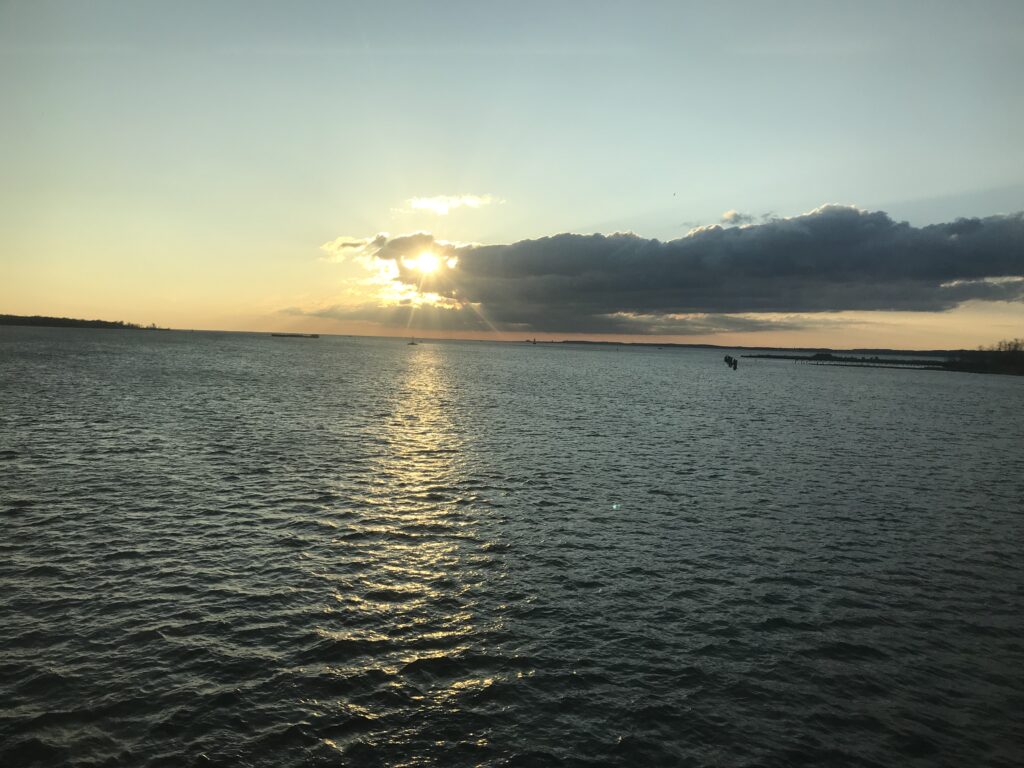The Morning After: A Next Day California Remembrance

Most likely the morning after the Californian primary is a tough one for the hundreds of thousands of young Senator Bernie Sanders and Senator Elizabeth Warren supporters. They have invested their time and money in a primary process that seems hell bent on delivering former Vice President Joe Biden as the antidote to President Donald Trump.
Call it the Rushmore effect.
On the way into New York City to work at the Chief this morning I was overcome with emotion reflecting on what was one of the darkest and defining moments of my life a half century ago.
It was the morning after the 1968 California Democratic primary when it was clear Senator Robert Kennedy was in grave condition, having been shot after celebrating his pivotal California primary win after midnight on June 5.
I was twelve years old.
My mother Patricia, who had almost become a nun before I entered the world, had always encouraged my unnatural and precocious obsession with politics by paying me 25 cents to name all the Presidents, the states and their capitals, and for an additional quarter the line-up of President Kennedy’s cabinet.
I don’t think she ever forgave herself for letting me stay up to watch the returns with her and the brutality of what unfolded. For us, for the nation, this political murder was not a one-off.
Talk about winning not being everything.
RFK’s assassination has to be taken in the context of just how blood-soaked our politics was, and really always has been if you include our further notice wars.
Just a few years before Bobby Kennedy was shot and killed, I had been left alone to watch my brothers and sisters so my parents could go to mass at St. Catherine’s in Glen Rock to pray for President John Kennedy, and we watched as Jack Ruby shot Lee Harvey Oswald.
Just two months before RFK’s murder in April of 1968, I had gone with my father and a delegation from the Knights of Columbus to march from the African American neighborhood on Broad Street in Ridgewood in a multi-racial ecumenical march that stretched for blocks on the Sunday after Dr. King’s murder.
Over a half-century later I recall the birds chirping as I held my father’s hand in a sea of strangers. I can still hear the sound of the shuffling of what memory informs me was thousands of shoes shuffling on the blacktop all headed in one direction.
Both my parents are gone and the one enduring gift they gave me was that they didn’t try to protect me from the absolutely cut-throat nature of American politics and that I had a moral obligation to get in the knife fight.
And in the aftermath of the 1968 spring of death, to their everlasting credit, my parents let me engage full bore in the local protests against the Vietnam War.
You think twitter is mean?
Try walking with peace activists in the streets of northwest Bergen County around that time as Nixon’s “silent majority” let you have it from the sidewalk for “not supporting our boys in Vietnam and giving comfort to the enemy.”
Somewhere in high school, as I was reading the accounts of the protests I attended and their inaccuracies, I gravitated to journalism because I came to see the power in being the person that digests current events and distills them as news.
It helped that local journalism paid 10 cents a column inch and $5 if you took a picture with the story. So, as a high school kid working for the Ramsey-Mahwah reporter. with a very patient editor Stephenie A. Ralston, I had a seat at the reporter’s table covering Borough Council meetings.
I had standing sitting at the press table and I couldn’t drive.
As I found my voice and the power of the printed word, my family came apart. My father, who had actively campaigned for RFK in the New Jersey primary that was held the same night as California was really never the same again.
The textile industry was being exported overseas and he lost his job. Alcohol was the way he medicated his stress of having brought six kids into the world and not being able to financially support them in a country that really didn’t care one way or the other. He started living in his car or in rooming houses.
The first elected official I ever met was Bergen County Sheriff Joe Job when around the same age he served me the foreclosure papers on our family’s home.
Now, living in rental housing in Ramsey along the Erie tracks, with my mother and my five brothers and sisters I cobbled together a living together by getting a good union job in the Shop-Rite across the street that the Inserra family owned.
I had wanted to be a lawyer like RFK, but the economics of being the oldest of six in a single parent household put that out of reach. I was happy I could afford the $350 dollars for tuition to Ramapo College.
In the decades since I have worked all kinds of jobs; classical dance, roofing, farming, carpentry, loss prevention, government, soil mining, timber harvesting, but always writing and asking myself how I know what I know.
I hope that young Warren and Sanders activists are not discouraged the way I was when Hubert Humphrey got the 1968 Democratic nomination clearing the path for the national trauma that was Richard Nixon.
Just know your cause is just and this country has been a mess for a really long time.
And as Dorothy Day, the founder of the Catholic Worker put it, “Our problems stem from our acceptance of this filthy, rotten system.”
Don’t ever accept it.
Destiny is counting on you. The hope of all of our ancestors resides in you.
Oh, and sorry about the planet.





